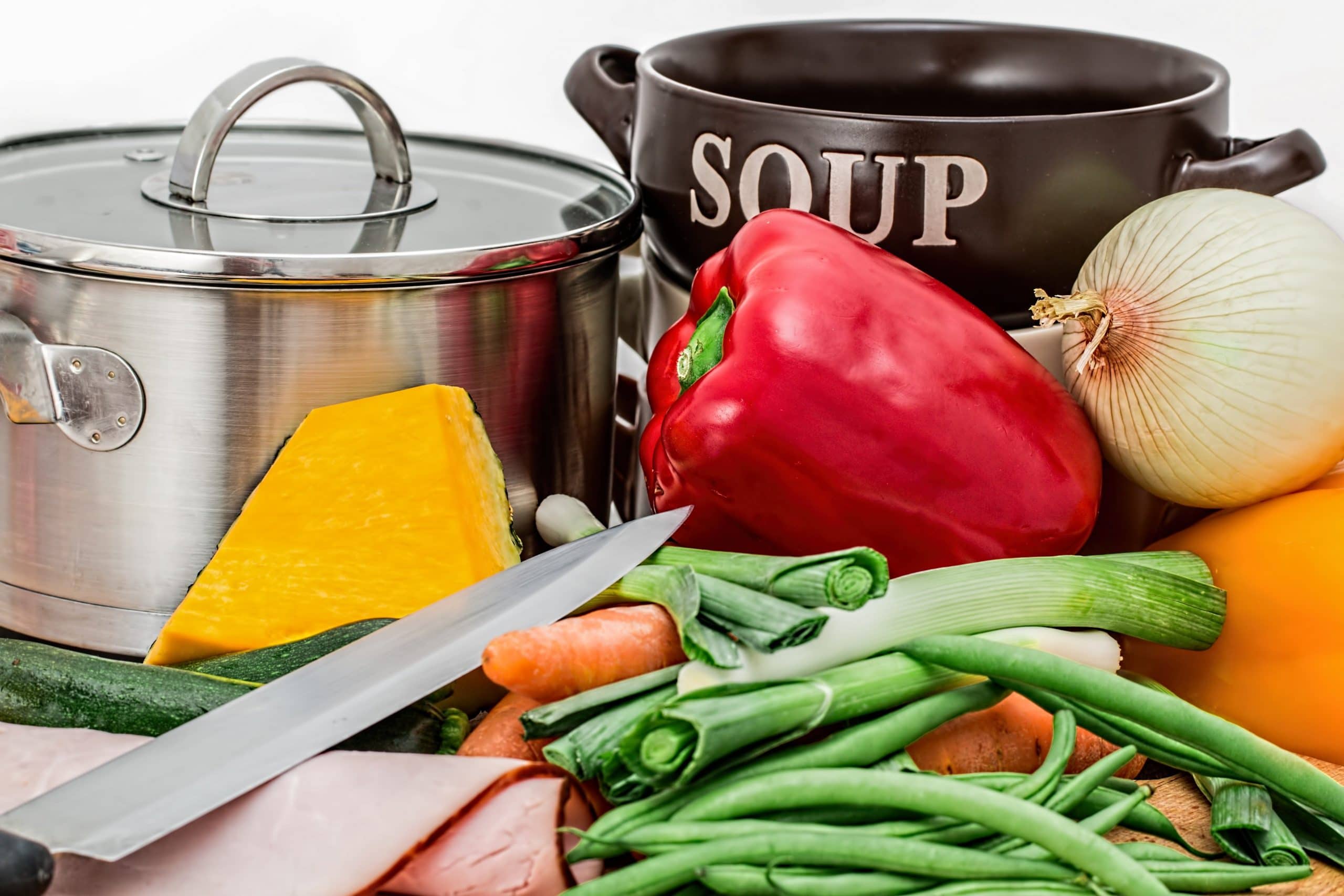The IBS Diet – Dietitian Advice
- Low FODMAP diet
It is no surprise then that I frequently get asked about the best ‘IBS diet’ to go on as Irritable bowel syndrome (IBS) is often triggered by food.
But, as with many things in gut health, there is no such thing as an ‘IBS Diet.’ Instead, there are many different parts to a diet which need to be considered.
In this article, I will explain the different things you can try with your diet to improve your IBS symptoms.
Diet Pattern and Eating Habits
At the very core of good gut health, there are some basics you must get a handle of before going further with your changes and trials.
- Eating 3 meals per day
- Drinking 1.5-3L of fluid a day
- Avoiding excess caffeine
- Avoiding excess alcohol
- Managing stress
These are all key elements of a healthy gut. They form the backbone of any IBS diet.
Alongside this is fibre, with a recommended 30g / day in the UK.
Supplements
Peppermint Oil
Peppermint oil capsules have been shown to help with stomach pain in those with IBS. You can read more about this is one of my previous posts here.
Fibre Supplements
Golden linseed – either whole or ground are often useful for those with constipation type symptoms. The linseed actually form a gel like substance in your bowel which helps you go to the toilet.
Start off with just 1 teaspoon of linseed per day and work your way up to 4 tablespoons slowly. Stop increasing your intake when your notice your symptoms improve to a satisfactory standard or if they worsen.
Please note, you will need to ensure you are drinking plenty of water for the linseed to soak up. Ideally 150mls alongside the linseed and a total of 1.5 – 3 L of fluid / day (1).
Wheat bran is not recommended in those with IBS as it may actually worsen symptoms.
Probiotics
Probiotics are live bacteria which are able to reach the large bowel in a quantity which provides a benefit to your health.
There are several brands of probiotics on the market now which are well researched to show that they help improve IBS symptoms and so can be incorporated into an ‘IBS Diet.’ To find out which probiotics are beneficial in IBS, click here.
Care should be taken with probiotics, as not everyone seems to get a benefit. Trial 1 type for a month and if you see no chang, trial a different brand.
Prebiotics
Prebiotics are food for the good gut bacteria in your large bowel. We know that an altered gut bacteria is often seen in those with IBS and so protecting or improving these levels through prebiotics may well help your symptoms.
You can either take a supplement or include foods in your diet which naturally contain prebiotics. For more advice on this, please click here to access my other article all about Prebiotics as part on an IBS diet.
Just a note – be careful which your dose you take, as higher intakes can lead to worse IBS symptoms.
The low FODMAP Diet
The low FODMAP diet is a process of reducing fermentable carbohydrates and then reintroducing them to find out which group or groups are causing IBS symptoms.
The low FODMAP diet is not a diet for life though and recently studies have shown that following a this diet in the long-term may have negative affects on your health (2).
Although this diet may appear simple, it can complicated. It may even cause your symptoms to worsen, or for you to end up with a nutritional deficiency. For this reason, it is recommended that you only do this diet under the supervision of a registered dietitian.
Summary
There is no such thing as 1 ‘IBS diet’ unfortunately. But, start off with the very basics and then trial other areas one at a time to find out which one suits you.
Do not feel overwhelmed as IBS can be quite complicated and it is not unusual to need help from a professional If this is the case, contact me today for a chat.
